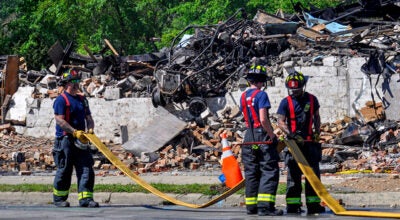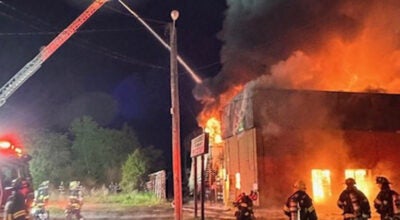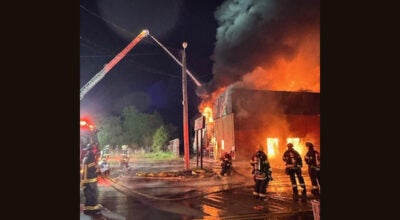Governor declares state of emergency
Published 10:38 pm Thursday, March 12, 2020
|
Getting your Trinity Audio player ready...
|
Gov. Ralph Northam declared a state of emergency in Virginia Thursday as the Virginia Health Department has confirmed 17 presumptive positive COVID-19 cases.
The declaration allows for additional flexibility in dealing with the virus.
“While Virginia has been preparing for weeks, and we have adequate funding on hand, it has become increasingly clear that states need to lead the national response,” Northam said.
Of the 17 presumptive positive cases of COVID-19, the illness caused by the coronavirus, two each are in James City County and Virginia Beach, and one is a student at Longwood University in Farmville.
In the northern part of the state, there are 11 presumptive positive cases, including four in Fairfax County, two each in Loudoun and Arlington counties, one in Alexandria and one each in Prince William County and in Fredericksburg. The other case is in Hanover County near Richmond.
The two cases in James City County, part of the Peninsula Health District, is believed to be related to international travel and not by community spread, according to the state health department.
No one has died in Virginia as a result of the coronavirus outbreak. However, six of the 17 presumptive positive COVID-19 cases have required hospitalization.
As of noon Thursday, there have been 1,215 U.S. reported cases of COVID-19, according to the Centers for Disease Control, and 36 people have died. Forty-three states and the District of Columbia have reported COVID-19 cases. Of those cases, 125 are travel related, another 102 are related to close contact and another 988 cases are under investigation.
No COVID-19 cases have been reported in the Western Tidewater Health District, which includes Suffolk and Franklin, along with Isle of Wight and Southampton counties.
“The situation is fluid, and it is changing rapidly,” Northam said.
Most people with COVID-19 have mild to moderate symptoms, according to the state health department. A small number of people, however, can experience more severe symptoms, leading to death, especially for those who are older or have chronic medical conditions.
Symptoms include fever, cough and difficulty breathing, and they appear within 14 days of being exposed to someone who has been infected. COVID-19 spreads mainly through respiratory droplets that come when an infected person coughs or sneezes.
Northam called for state residents to avoid large gatherings, and he has canceled all state conferences and large events for the next 30 days. He also called for local governments and private organizers to do the same.
“Our goal is to get everyone back to work as quickly as possible,” Northam said. “But make no mistake, protecting public health is our top priority. That is driving all of these decisions and it will be the determining factor of all our decisions as this situation moves forward.”
Northam said he has directed the state’s economic teams to assess and prepare for long-term impacts to the economy.
The state of emergency also kicked in Virginia’s anti-price gouging statutes to designed to protected people from paying higher-than-normal prices for needed items and services during the emergency.
“Virginia law offers protections for folks who find themselves in need of things like medicines, cleaning products, hand sanitizers and other necessities during a public health crisis,” Attorney General Mark Herring said in a statement.
State epidemiologist Dr. Lilian Peake said there is still no sign of community spread of the virus, or cases in which it is unclear how the patient got it.
State employees are not allowed to travel outside the state for at least 30 days, with increased flexibility for essential personnel and those traveling within the state. Northam has also directed Secretary of Administration Dr. Keyanna Conner to put in place a phased transition to teleworking for state employees.
Northam’s administration has also been in contact with local superintendents and advised local school divisions to consult with local health departments to update their pandemic guidelines.
He advised localities to make their own decisions in consultation with local public health officials.
“For example, schools build days into their calendar for snow days, but in most parts of the state, we have had a light winter, and those days are available,” Northam said. “Schools need to consider how to best serve those students with disabilities and make sure there are accommodations.
“And while rates of absenteeism are typically factored into our accreditation process, this emergency order will give authority to issue waivers for that requirement.”
The Virginia Department of Health has also expanded its testing criteria so that those with coronavirus symptoms who live in nursing homes get top priority and are tested immediately.
“We understand how critical it is to stay in front of this disease,” Northam said. “While it is very likely to spread, our actions can help mitigate how fast and how far this virus spreads. It is our responsibility, every one of us, to take this seriously and do our part to help limit the spread of this disease.”
The World Health Organization on Wednesday declared the coronavirus outbreak a global pandemic.






